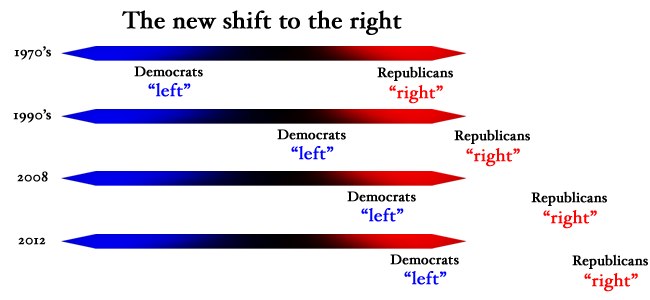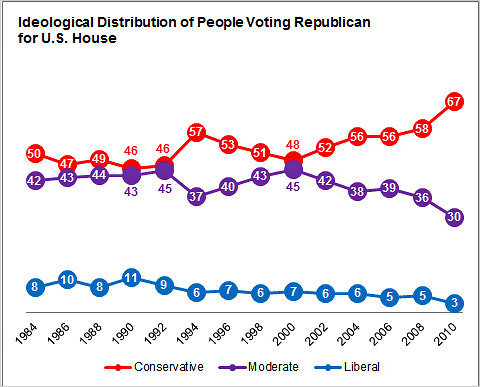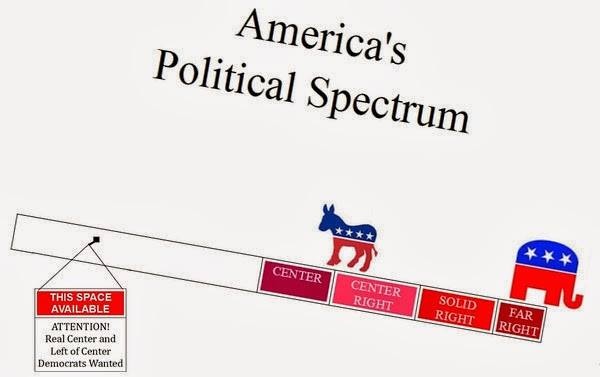After former Florida Gov. Jeb Bush faced a tough couple of weeks related to his
comments about whether he would have invaded Iraq even if he had known about faulty intelligence, he used a new tactic in New Hampshire: Blame President Barack Obama.
"The world is radically different, and so the focus ought to be on ‘knowing what you know now, Mr. President, would you, should you have kept 10,000 troops in Iraq?’ " Bush
said at a roundtable event in Portsmouth May 20.
Bush noted that the Iraqi city of Ramadi had been taken over by ISIS the day before his roundtable. He then continued:
"ISIS didn’t exist when my brother was president. Al-Qaida in Iraq was wiped out when my brother was president. There were mistakes made in Iraq for sure, but the surge created a fragile but stable Iraq that the president could have built on....." He then criticized how Obama has handled Iraq.
We decided to fact-check Bush’s claims that ISIS did not exist under President George W. Bush and that al-Qaida was wiped out in Iraq. (The
Washington Post’s
The Fact-Checker examined this issue as well.)
‘ISIS didn't exist when my brother was president’
A spokesman for Bush’s political action committee pointed to a 2014
op-ed by Ali Khedery, who served as senior adviser to three heads of US Central Command from 2003-10.
It starts by saying, "Three years ago, the
Islamic State (ISIS) did not exist; now it controls vast swaths of Syria and Iraq."
Technically, yes, a group with the name "ISIS" did not exist under President Bush.
The group’s roots, however, trace back to 2004.
"There were evolutions that took place with some of the name changes," said Daveed Gartenstein-Ross, senior fellow at the Foundation for Defense of Democracies.
In 2004, long-time Sunni extremist Abu Mus‘ab al-Zarqawi established Al-Qa‘ida in Iraq (AQI), also known as the Islamic State of Iraq (ISI) and more recently the Islamic State of Iraq and the Levant (ISIL), according to the
National Counterterrorism Center.
After he was killed in a U.S. airstrike in 2006, the group was renamed the Islamic State of Iraq.
In 2013, the group was referred to as the Islamic State of Iraq and al-Sham and then just the Islamic State in 2014, Brian Fishman, a counterterrorism expert at the New America Foundation, told PolitiFact Florida.
"Al-Sham just refers to the Levant and reflects the group's increased focus on Syria," he said. "It reflects a geographic shift rather than change in political focus. It's the same group throughout."
‘Al-Qaida in Iraq was wiped out when my brother was president’
Al-Qaida’s power waxed and waned over the years, but was it "wiped out," as Jeb Bush said?
The group’s targeting of Sunni civilians, which led to a backlash, combined with operations by Coalition forces and the Iraqi government, weakened the group in 2007.
The
Congressional Research Service wrote in August 2008 that U.S. officials concluded that al-Qaida in Iraq was "weakened almost to the point of outright defeat in Iraq, although they say it remains lethal and has the potential to revive in Iraq."
The surge under Bush was successful -- the attacks al-Qaida was carrying out had significantly declined by January 2009 when Bush left office.
"Literally everybody viewed this as a defeat for ISIS," Gartenstein-Ross said. "When I say everybody I mean al-Qaida included. They viewed this as a major defeat to its brand."
A spokesman for Jeb Bush pointed to several articles that noted how the group was weakened, including a
Washington Post article that stated that in 2009 "the power of the Islamist militancy in Iraq was at its lowest ebb, and the number of killings had
plunged."
In 2010,
Vice President Joe Biden declared success in Iraq. When the combat mission ends, he said the administration "will be able to point to it and say, ‘We told you what we’re going to do, and we did it.’"
But three factors led the group to a comeback: the Syrian war, the Iraqi government ruled in a sectarian way that alienated Sunnis, and the U.S. withdrew troops.
Two experts we interviewed disagreed with each other on the extent that al-Qaida was "wiped out" under Bush.
"There is no doubt that the surge hurt AQI/ISI deeply," Fishman told PolitiFact Florida. "The group was much weaker as a result. But it remained vibrant by the standards of any other AQ-linked jihadi group in the world."
Derek Harvey, a retired U.S. Army colonel who provided counsel to the U.S. on Iraq during Bush’s presidency and is now a professor at the University of South Florida, told PolitiFact that he disagreed with Fishman’s statement about the strength of ISI.
"The fact is that the few remnants of the organization found refuge in Syria, and it was there that they found the space and time to rebuild in 2009-11, and by summer 2012 they were strong enough to reemerge in Sunni Arab provinces in Iraq," he said. "Although there will always be remnants of terror groups, I say that Jeb Bush is accurate that AQI was wiped out."
But al-Qaida did have a rebirth, Harvey said.
"Both al-Qaida as a larger organization, and the Islamic State are far more powerful, diffused into more lands and among more distant peoples than at any time during the Bush years," Harvey said.
In 2014, Obama was criticized for underestimating the Islamic State when he referred to it as a
"JV" team in a January article in the
New Yorker.
In February 2014, the leadership of al-Qaida
disowned the Islamic State of Iraq stating online that its former affiliate "is not a branch of the al-Qaida group (and al-Qaida) does not have an organizational relationship with it and is not the group responsible for their actions,"
Time wrote.
We will turn to Michael O’Hanlon, an expert on defense policy at the Brookings Institute, to summarize a critique of both of Bush’s claims:
"ISIL is a relatively new creation, but its roots are in al-Qaida in Iraq. Al-Qaida was significantly weakened by President Bush and company, but it was not wiped out. Moreover, the dynamics that the Iraq war set in motion contributed to the rise of ISIL, because Syria facilitated movement of many foreign fighters in and out of Iraq, and some of them resettled in Syria after the Iraq surge.
"Also, al-Qaida in Iraq didn’t really exist before the 2003 invasion," O’Hanlon said. "So it’s too clean and neat for Gov. Bush to make the statement he did; there are kernels of truth in his claim but it misses a broader reality."
Our ruling
Bush said, "ISIS didn't exist when my brother was President. Al-Qaida in Iraq was wiped out when my brother was president."
There are problems with both pieces of Bush’s claim. Yes, a group called ISIS didn’t exist while Bush was president, but the roots of the organization were indeed present and operating under a different banner.
As far as claiming al-Qaida was "wiped out," most experts consider that a stretch. The group’s power certainly diminished under Bush but it wasn’t wiped out.
Bush’s statement contains an element of truth but ignores critical facts that would give a different impression. We rate this claim Mostly False.








